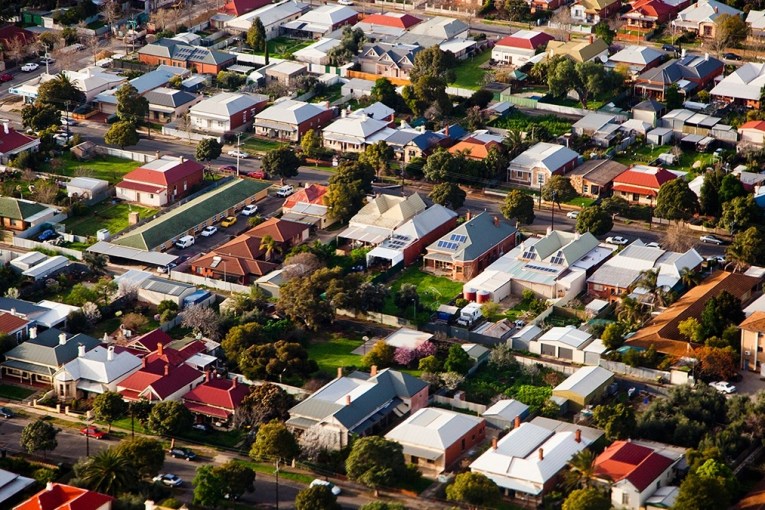Why the First Home Owner Grant has failed as a housing policy

If Victoria decides to scrap the first First Home Owner Grant (FHOG), it will end a populist policy that only serves to “heat up” the housing market, according to experts.
Dr Michael Fotheringham, managing director of the Australian Housing and Urban Research Institute (AHURI), said raising prices is the legacy of the FHOG scheme.
“The simple calculation here is if you give all first-home owners a grant of $10,000, the price of properties they are competing for goes up by $10,000,” he said.
“They sound like a helpful leg up, but really the reason they exist is to help first-home buyers compete with investors who have a whole lot of tax offsets.”
The Howard government introduced the FHOG, a one-off grant payable to people purchasing their first home, in 2000 to offset GST’s effect on home ownership.
The Victorian government is now considering scrapping the scheme as a part of an overhaul of planning and housing affordability in the state, according to The Age, following the Australian Capital Territory ditching the grant back in 2019.
Professor Hal Pawson, director of housing research and policy at the University of New South Wales, said it is one of the least recommended ways that you can assist first-home buyers.
“Unfortunately, it is one of the most sought-after politically or electorally because it seems like a common sense way to approach the problem,” he said.
“Very few who have looked at it or certainly just about no housing economist would say it’s a good way to go.”
States and territories administer and legislate the scheme, meaning they are able to change or remove the grant through state parliaments.
Research finds scheme increases demand
Researchers from UNSW Sydney, RMIT University and University of Sydney, including Professor Pawson, found the scheme added to demand and pushed up property prices, despite more than $20 billion of public funds being spent on it between 2010 to 2020, in a study commissioned by AHURI.

Research has found the First Home Owners Grant hasn’t made it easier for people to enter the market. Photo: ABC
Dr Fotheringham said the grants are a “highly sellable political message,” but even if they are removed it is unlikely to help reduce property prices.
“At this point, house prices are so heated it is unlikely to claw them back,” he said.
“We’ve got a supply challenge at the moment where both the workforce capacity and the material supply chains are making it very hard to keep up with demand.”
The study also found the scheme brought forward home purchases for households already close to entering the property market, rather than creating more access for those struggling to buy a home.
Professor Pawson said Australia has relied on grants and stamp duty concessions much more than other countries around the world.
“To the credit of the Australian governments, including the Commonwealth under Scott Morrison, there was a big realisation in the past five or 10 years that this is the reality,” he said.
“Even though there’s still a big political appeal of something like stamp duty concessions or a first-time buyers grant, there’s been a very welcome move away from relying on these forms of assistance.”
He said other methods like shared equity schemes, low mortgage deposits and home guarantees are better for ensuring people can enter the property market.
“The most important thing is that the government intervenes on both sides of the housing market if they are providing these kinds of assistance for first-time buyers,” Professor Pawson said.
“It’s very important that governments are also supporting the supply side of the market, because if it doesn’t keep pace then any form of help that’s given to the demand side, it is liable to be inflationary.”
Grants around the country
To be eligible for the grant, it must be the first home a person, not a company or trust, purchases and at least one person making the application must be a permanent resident or Australian citizen.
Usually, the first-home buyer must occupy the home as their place of residence within 12 months of construction or purchase for a year.
- In Victoria, the $10,000 grant is available to applicants buying or building a home valued at up to $750,000
- The NSW government offers a $10,000 grant to households purchasing a property valued at no more than $750,000, or a newly constructed home valued at no more than $600,000
- In Queensland, a $15,000 grant is available to first-time owners buying or building a home up to a value of $750,000
- The ACT government no longer offers a FHOG to buyers, and instead offers a stamp duty concession scheme based on income and dependent children
- In Western Australia, a $10,000 grant is available for housing valued up to either $750,000 or $1 million, based on location
- In South Australia, households can access $15,000 for new homes valued up to $650,000
- The largest FHOG in the country is in Tasmania, where new home owners can access a $30,000 grant on a property of any value.








